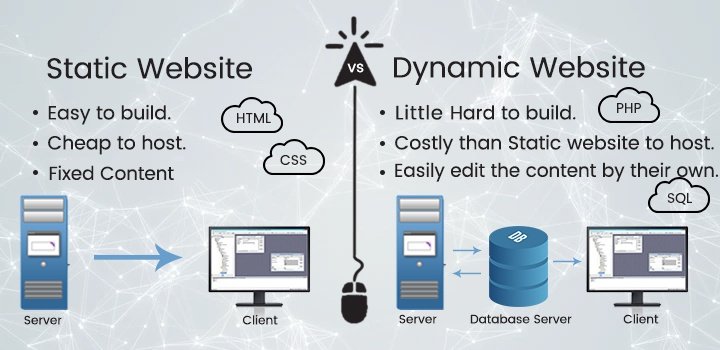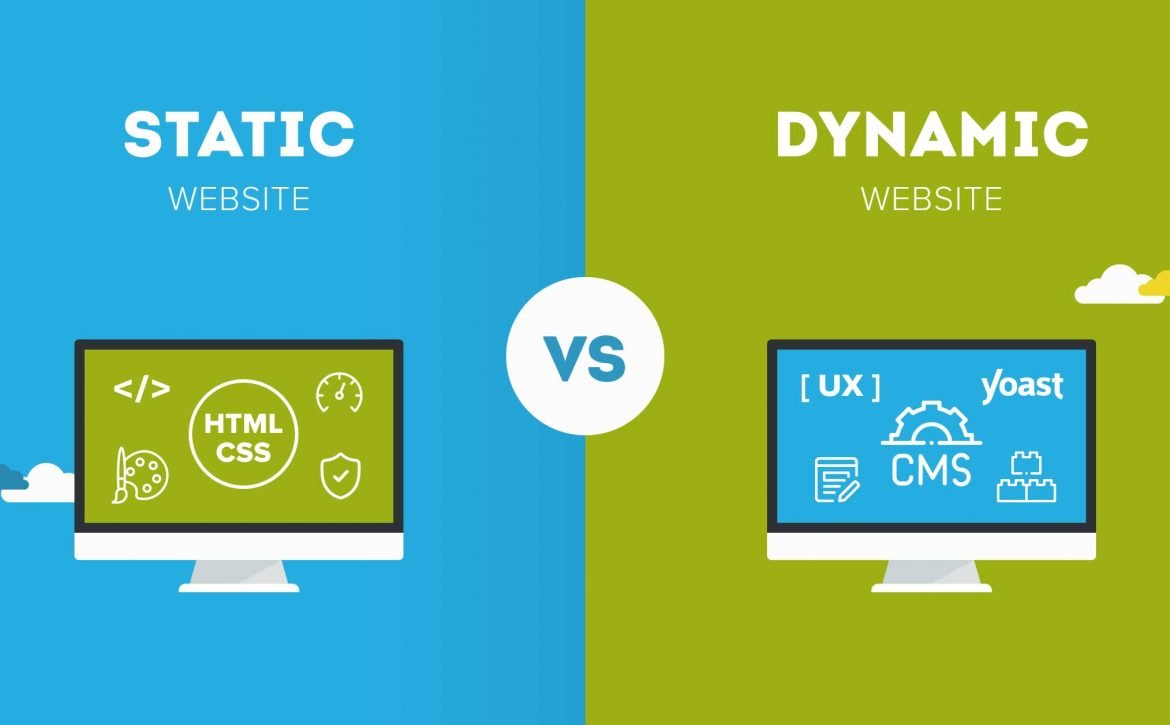What is the Difference Between Static and Dynamic Website?
Words are the carrier of meaning. These arranged alphabets help you find and get to the real meaning of words.
For example, let’s understand the meaning of dynamic and static. Dynamic sounds more functional while static means something that stays the same. You agree, right?
You must agree that the world is taken with a rapt since the inception of Static and Dynamic Websites. For any business, going online comes with a website, and taking care of that, here is Digital Notebook, a Digital Marketing Agency and Website Designing Company in Noida working to secure all your dreams with it’s creative solutions.
Building over it, let’s understand what static and dynamic websites are and what good are they for.
But before that let’s touch upon the basics of a website… Dive in…
What exactly is a Website?
Website is a collection of web pages, and multimedia such as image, text, video, etc. A website can be accessed by a URL that appears on the address bar of the browser. For example digitalnotebook.in.
However, that’s not how easy the entire processing of websites is. Whenever you enter a URL on your browser, a lot happens internally. The browser requests the page that you enter in the address bar from the web server and then the web server passes on the information required. Thus the web server in most cases acts as a medium. This varies for the type of website you are looking out for.
Types, what are they? Dive into the next section and get a step closer to understanding what a static and dynamic website is.
Read onwards!
What is a Static Website?

Often called a flat or stationary page, a Static website is the one that bears the same appearance on the web browser as well as in the place where it is stored. It contains web pages with only fixed content coded in HTML.
As the name suggests, it does not change. It stays the same i.e. “static” for everyone. Why is that? Because it does not require web programming and database design.
Unlike other types of websites, a Static Website is easy to create and perfect for small businesses! However, if you want hundreds of pages, then this is not suitable for you. What is then? Dive into the next section…
What is a Dynamic Website?

Also popularly called a database-driven site, a Dynamic website unlike Static requires web programming and database design. Its content changes from one type of viewer to another. How? It depends on a variety of factors like the visitor of the website, the native language of the visitor, the time zone, etc.
The content of the website is stored in the database. Whenever a change is made into the database, it gets reflected on the website as well! Isn’t that amazing?
Difference Between Static and Dynamic Website?

In the above section, you must have got a fair idea of what these two types of websites are. However, a definition cannot actually contain the magnitude of these two websites. There is a lot more to both static as well as dynamic websites. For that check out the following criteria and how efficiently static and dynamic websites work on these conditions:
Use of Language
Static pages are generally created with HTML while developers use languages like PHP, Java script, or Action script for creating a dynamic website.
Content of the Website
In a Static website, the content remains the same however in a Dynamic website it changes as time rolls on.
Loading Speed
Because of how minimalistic a static page is (both in looks and technicality), it is really easy to load it on the web browser while Dynamic takes more time to load because of the loaded capacity.
Changing Content on the Website
When it comes to a static website, to your disbelief, changing content is difficult. Why so? Because herein you will have to develop and upload a newly designed page from scratch. However, for a Dynamic website, changes can be made really easily.
Identification Marker
If the file extension shows up .htm or .html on its URL, then it is static website. While if you can spot .php, .asp, and .jsp in the URL then that surely is an example of a dynamic web page. Simple, right?
Simplicity and Easy to Build
Static pages are go-to for people who want to go really simple with the process of developing a website. On the other hand, dynamic web pages are limited to code experts.
Content Updating Frequency
While developing a website make sure how often do you have to update it with new content. If you don’t feel the need then a static website is the best suitable for you. However, if you can’t do without updating your website in a few days, then a static website is no option. For that dynamic website is the best suitable go-to for you and your business.
Static Website VS Dynamic Website: Which one’s better?
Well, no is no thumb rule for coming up with a straight answer for this question. It must be understood that both these kinds serve a particular function and are best suited for a certain kind of people. So the larger question here is not which one’s better but what kind of purpose you are using it for. If you just want to come up with a static page, that does not require any further update in the future, then you should go for a static website. It will successfully fulfill all your needs while keeping it simple. Moreover, if you want to make a website in a lesser amount of time, static is again the best suited for you. However, if you need a website on which you want to update the content every once in a while then you should definitely go for a dynamic website. Truly dynamic in its nature, it can help you fulfill your dynamic needs.
Conclusion
There you go, people! In this blog post, we tried to bring forth the key differentiating qualities that clarify the true difference between static and dynamic websites. We hope we have enlightened you with our blog. Hope to see you soon, till then keep reading!

